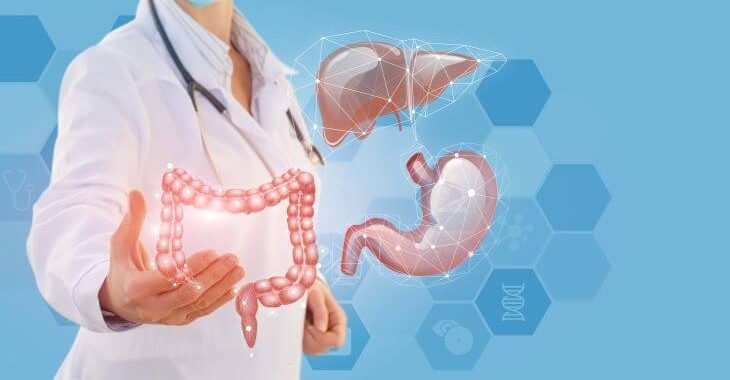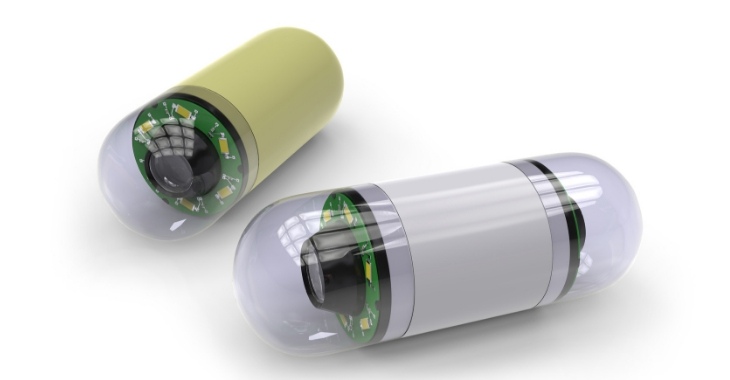What Does Yellow Poop Mean?

The “poop” emoji tells you the correct color for healthy adult feces: brown. When your bowel movements change color, it can be an indication of issues in your digestive system or vital organs. One of the concerning colors of feces are shades of yellow, but feces color alone is not indicative of any specific health issue. Here are some of the lifestyle and health factors that can cause yellow poop and when you should seek medical advice.
To understand the concern about yellow poop, you should understand why feces is normally a shade of brown. The color of bowel movements is usually determined by the elimination of destroyed red blood cells and hemoglobin in the form of bilirubin, a byproduct of the breakdown of hemoglobin in the liver. The body is constantly using up red blood cells and replacing them – the eliminated remains are secreted through the bowels and are a key factor in the color of brown feces.
When the color of feces changes, it can indicate changes to the bilirubin, including lower levels or other substances that are diluting bilirubin within the bowel movement. But there are also many other factors that can change the color of poop to yellow; some are serious health issues and others are just normal changes in your lifestyle or diet.
Top Causes of Yellow Poop
Yellow poop happens. In infants, it is completely normal. Breastfeeding infants should have yellow poop and all infants can have a variety of colors of feces. However, in adults, yellow poop should not be a normal occurrence. One day of yellow poop is not a concern, but if adult feces is consistently yellow, it could be a symptom of a health issue. Here are some of the top causes of yellow bowel movements.
- Food or beverages. What you eat has a big impact on the color of your bowel movements. If you eat large amounts of yellow or orange foods, it could affect your poop color. Yellow poop can be caused by eating carrots, turmeric, food coloring, sweet potatoes and other bright yellowish foods. Certain foods may also cause reactions that lead to yellow feces, like high-fat diets and gluten.
- Liver function. If the liver is not functioning correctly, it could result in yellow feces. Hepatitis and cirrhosis of the liver may cause a reduction in bile salt that impact the digestion process. Bile and bilirubin are two of the main factors that impact feces color and if bile salts are lower, a yellowish poop may be the result. Bilirubin is also created in the liver from hemoglobin breakdown and if the liver is not functioning correctly, it could result in changes to your bilirubin elimination and feces color.
- Pancreas problems. The pancreas is needed to digest fats – it releases enzymes into the digestive system to break down fats. If the pancreas is not releasing the needed enzymes due to a blockage, pancreatitis, cancer or other problems, the feces may be yellow and usually greasy from undigested fats.
- Gall bladder issues. If you have gall bladder problems like gall stones, it can impact your bile salts and digestion, which can result in yellow poop and other symptoms. Gall bladder issues can turn not only your feces yellow; you may also have jaundice that turns the skin and whites of the eyes yellow.
- Diseases. Certain diseases and disorders can result in yellow-colored bowel movements. These include Gilbert syndrome, which affects the liver and results in high bilirubin levels. Giardiasis is another possible cause, a parasite disorder also known as “beaver fever,” which can create yellow, foul-odor diarrhea.
- Stress and anxiety. Stress and anxiety issues can have a negative impact on the digestive system, resulting in undigested food passing through the body. This can result in bowel movement changes, including yellow poop.
As you can see, yellow feces alone does not indicate any specific health issue, but it can be a sign that something is wrong. When combined with other symptoms, it can alert you to possible problems with your digestive system and supporting organs.

When to See a Doctor for Yellow Feces
One or two days of yellowish bowel movements is not a red flag, especially if your diet has included yellow/orange foods, high fat or you have been under excessive stress. However, when your bowel movements are consistently a yellowish hue and you have other symptoms like abdominal pain, jaundice, diarrhea, unexplained weight loss or foul-smelling feces, you may want to visit your doctor. Depending on the other symptoms, you may need to see a specialist, such as gastroenterologist.
If you have yellow poop on an ongoing basis, you should find out what is causing this phenomenon. Contact your doctor to discuss this change and possible causes to ensure that it is not a symptom of a serious health problem.
The information provided on this website, including text, graphics, images, and other materials, is intended solely for informational purposes and should not be used as a substitute for professional medical advice, diagnosis, or treatment.


)